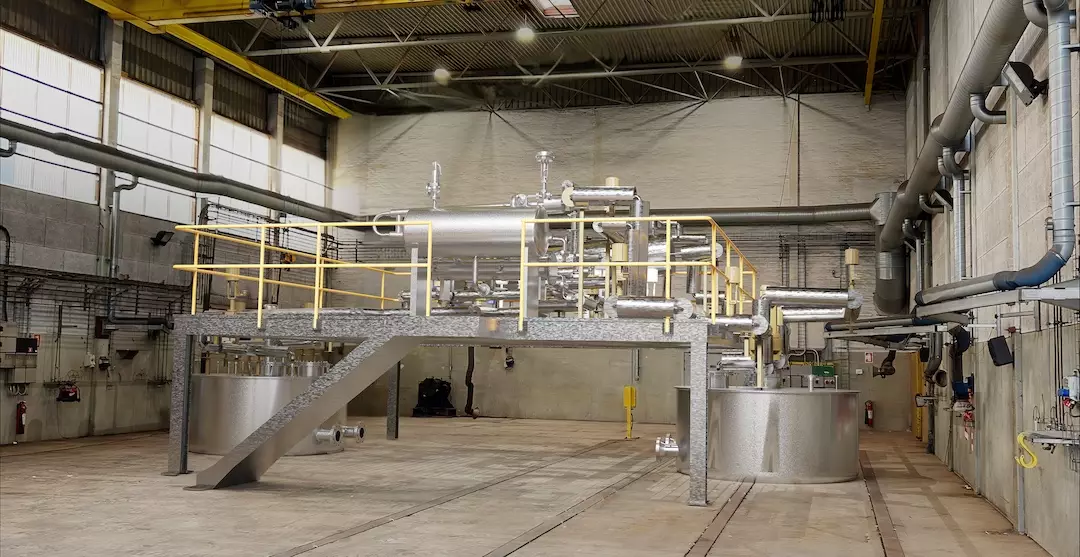In the quest for sustainable energy solutions, industries are constantly grappling with the limitations of conventional energy storage systems. Among these, lithium batteries have long been the go-to choice for various applications. However, as their cost continues to increase and their dimensions demand substantial space, companies are turning their attention to alternative solutions. Thermal batteries, unlike their lithium counterparts, present a method of storing energy in the form of heat—a more efficient option for many industrial requirements. With advancements in this technology, thermal batteries are making significant inroads into energy-intensive sectors.
The Danish company Hyme Energy has emerged as a frontrunner in the thermal battery landscape, specializing in the use of molten salt for energy storage. In a significant development, Hyme has partnered with Arla, the fifth-largest dairy producer globally, to engineer a comprehensive industrial thermal storage system at its milk powder production facility in Holstebro, Denmark. This collaboration aims to leverage Hyme’s robust molten salt system, designed specifically for sectors like food and beverage, chemicals, and metals manufacturing. The proposed system will boast a substantial capacity of 200 MWh, converting renewable electricity into high-temperature heat and storing it in molten salt tanks, thus serving as a viable substitute for fossil fuels.
Hyme’s thermal storage system sets ambitious objectives, including the total elimination of CO2 emissions from Arla’s production processes. The transition from fossil fuels to renewable energy sources not only aligns with global sustainability goals but also signifies a potential turning point for industries that are heavily dependent on energy-intensive processes. By optimizing the generation and storage of steam within a temperature range of 200°C to 500°C, Hyme Energy is addressing a crucial need for steam in manufacturing, thus positioning itself at the forefront of industrial energy transformation.
A pivotal question facing the thermal energy storage sector is the scalability of these technologies across Europe. Ask Emil Løvschall-Jensen, co-founder and CEO of Hyme Energy, is optimistic about the potential for rapid expansion. The flexibility inherent in their storage mediums allows for prompt scaling, given their strategy of collaborating with blue-chip suppliers and project partners, rather than attempting to manufacture components in-house. This approach not only streamlines the development process but also mitigates risks associated with rapid scaling.
The financial backing for thermal battery innovations presents a mixed picture. While it is often easier to secure funding for software ventures, there is a growing recognition in the investment community regarding the importance of capitalizing on emerging technologies at an early stage. Hyme’s fundraising journey illustrates this trend; led by Brightfolk, the company has successfully raised approximately €25 million ($26 million), with plans for an upcoming Series A round aiming for an additional €20 million to €30 million. The total venture funding in the thermal battery sector has seen a substantial boost, with projections suggesting a potential doubling of this amount in the coming year.
The field of thermal battery technology is becoming increasingly competitive, with multiple players developing innovative solutions. Companies like Electrified Thermal Solutions and MGA Thermal are making strides in energy storage technology—be it through bricks that store heat or compact thermal blocks respectively. Each competitor brings unique methodologies to the table, which collectively enhances the industry’s evolution toward renewable energy reliance.
The emergence of thermal batteries represents a significant shift in addressing energy storage challenges within industrial applications. As companies like Hyme Energy continue to innovate and collaborate with prominent industry players like Arla, the future looks promising for thermal battery technology to play a crucial role in achieving a sustainable, energy-efficient industrial landscape. The combined forces of technological advancement, strategic partnerships, and increasing investment in this space will likely pave the way for a new era of industrial energy solutions.

